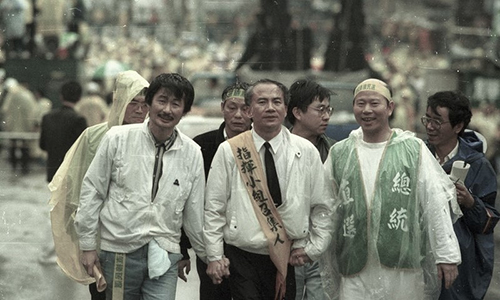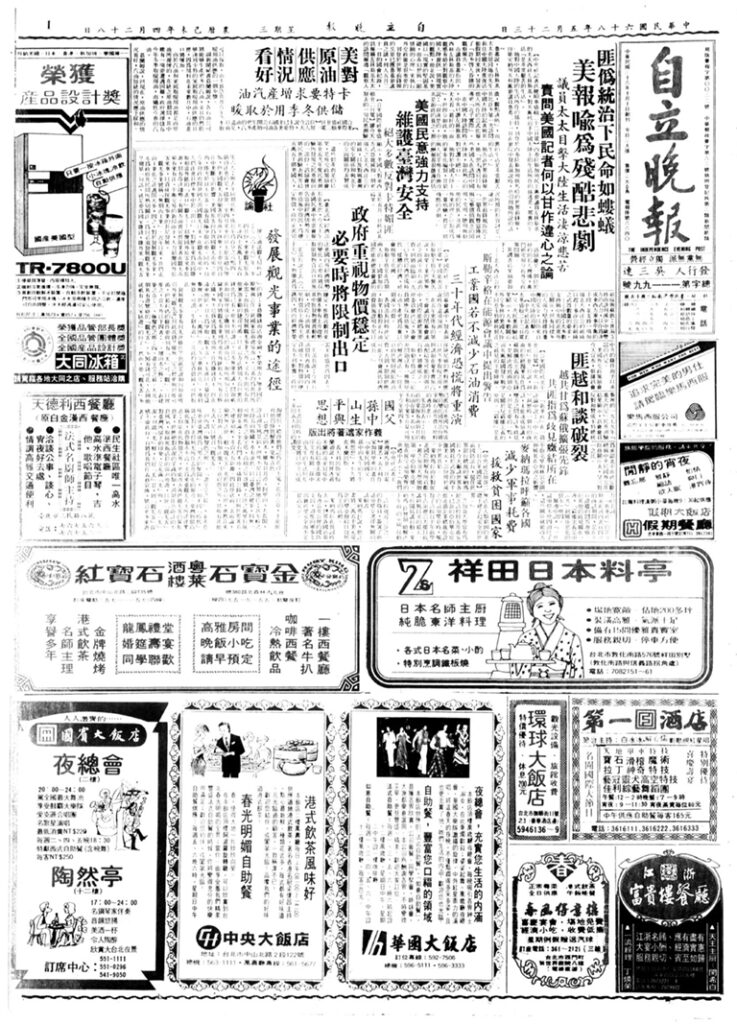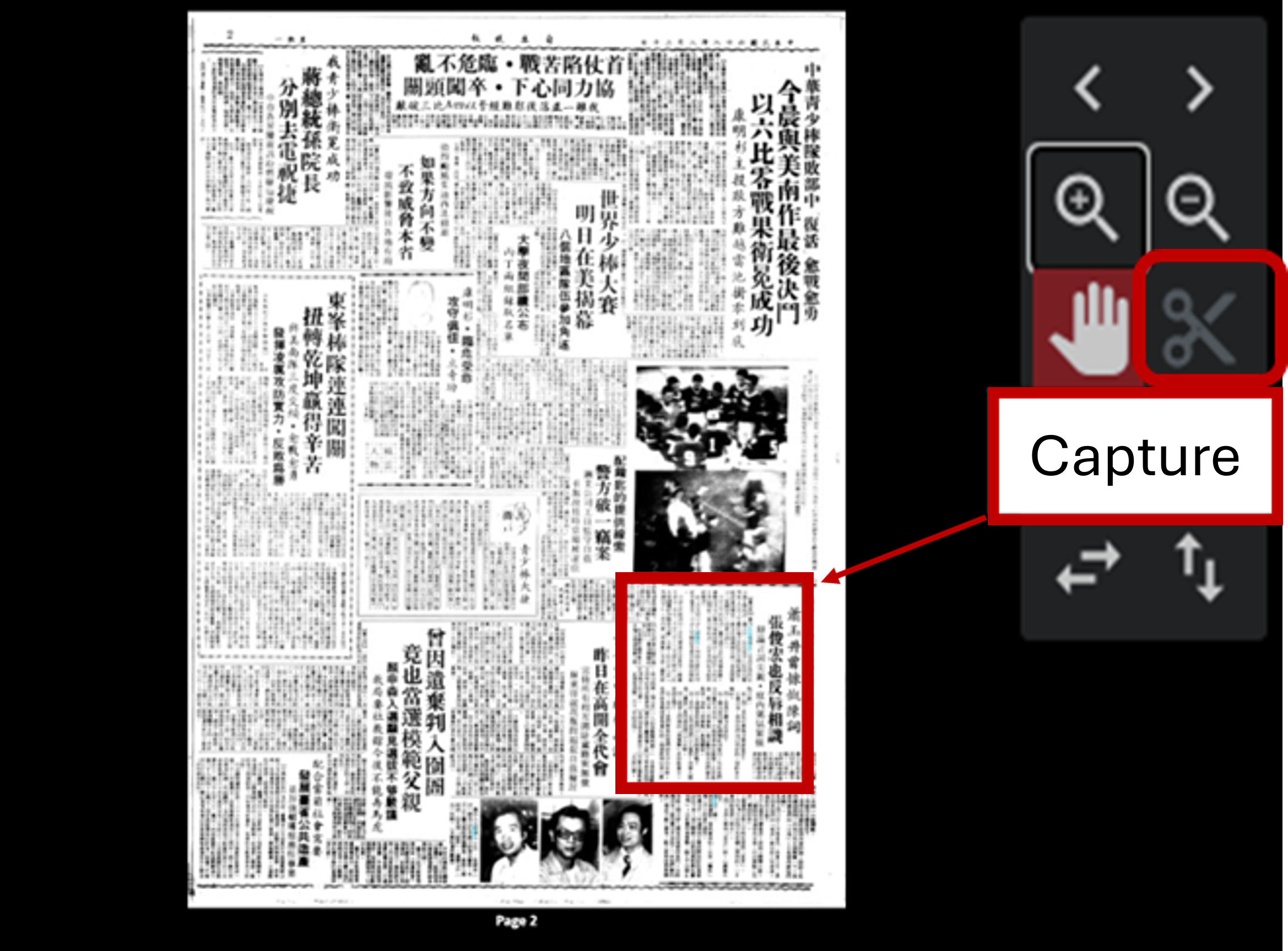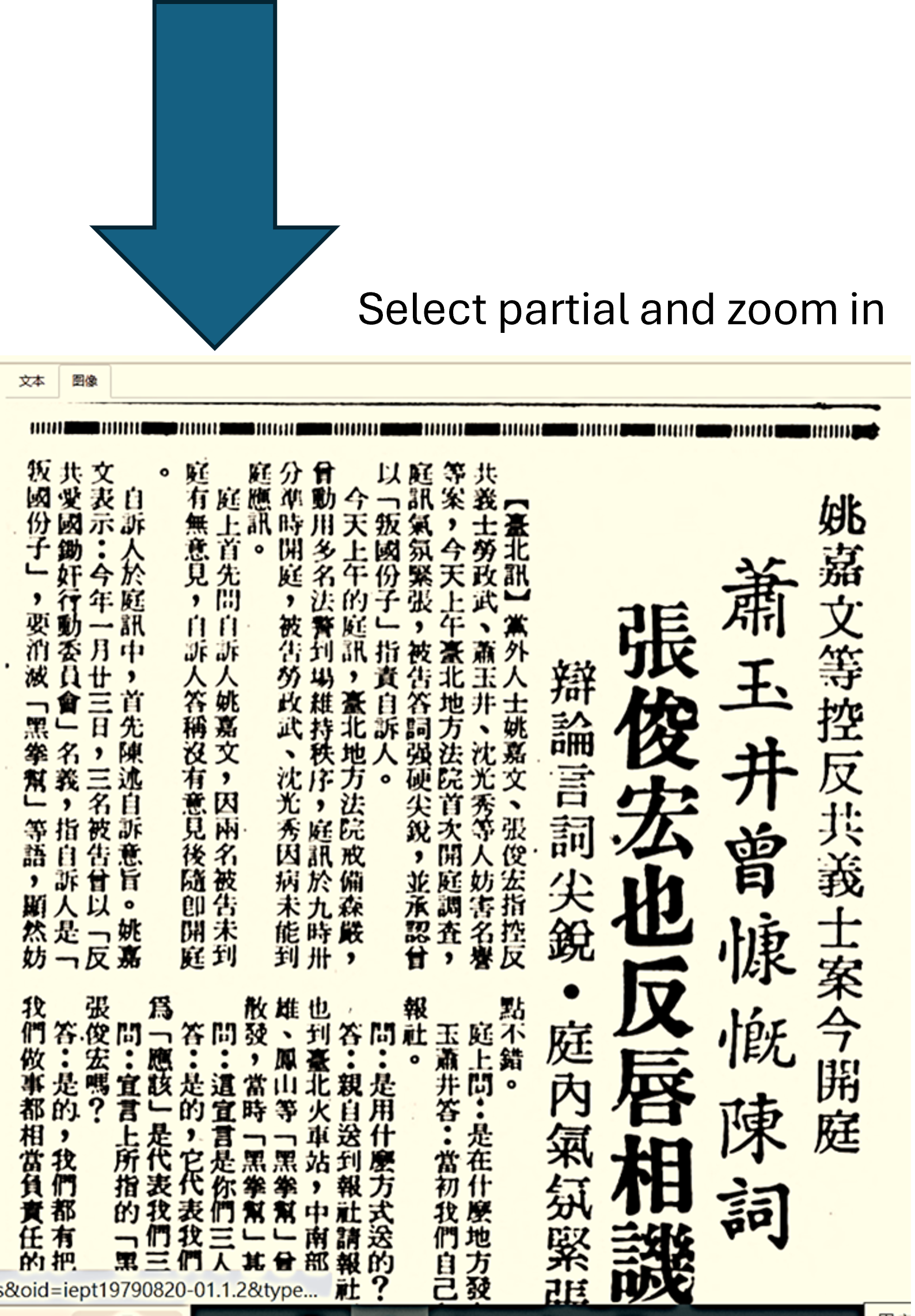Independence Evening Post Digital Archive
(1947-1995)
Beacon of Taiwanese Democratic Politics in the Authoritarian Era

Established in 1947, The Independence Evening Post emerged as the beacon of democracy and independence in Taiwan during its martial law era, distinguishing itself as the island’s premier Traditional Chinese evening paper. Championing an ethos of nonpartisanship and independent management, it shone as a symbol of Taiwan’s democratic aspirations amidst a landscape where media often echoed the ruling authority. This newspaper alone galvanized societal momentum for reform, steering Taiwan towards its democratic evolution.

During the authoritarian era, it meticulously covered pivotal events such as the Zhongli Incident, the Kaohsiung Incident, the declaration of the Taiwan Independence Movement by Peng Ming-min, amendments to the Publishing Law, and even broke Kuomintang taboos by sending journalists to mainland China for the first time. From the lifting of martial law in 1987 through the intense transformation of the authoritarian system until 1995, it spotlighted critical political developments including the February Political Conflict, the self-immolation of Cheng Nan-jung, the Wild Lily student movement, the end of martial law, comprehensive legislative elections, and the direct election of mayors, governors, and the president. These efforts not only propelled Taiwan’s democratization but also significantly shaped the trajectory of cross-strait relations.
At its zenith, The Independence Evening Post commanded 70% of Taiwan’s evening newspaper market, earning the distinction as the island’s most trusted evening publication, according to a National Science Council study dated June 5, 1993. Its Cultural Publishing Department played a crucial role in the 1980s by releasing a significant number of books on Taiwan’s history, contributing profoundly to the promotion of Taiwanese culture, history, and literature. The works of many dissidents and politically imprisoned authors, such as Yang Kui, Chen Yingzhen, Yang Qingchu, and Yao Jiawen, were exclusively featured in its pages, highlighting its unique influence and commitment to intellectual freedom.
As martial law and press bans were lifted in the late 1990s, The Independence Evening Post’s unique political edge waned. The passing of its champion, Wu San-lien, and the subsequent acquisition by a political-business conglomerate, diminished its independent spirit. These changes precipitated financial struggles, leading to the newspaper’s poignant closure in 2001, marking the end of a distinguished chapter in Taiwan’s press history.


The archive encompasses the crucial period from 1947 to 1995, showcasing Taiwan’s transition from authoritarianism to democracy. It offers an unvarnished glimpse into the era’s key political and social news, free from the embellishments of those in power—a truly invaluable resource. It presents original page layouts with full-text search capabilities, and users can select, clip and magnify specific sections for clear reading.
The newspaper originals are housed at the Hoover Institution and Stanford University, with production by EVIS.
UDP helds exclusive distribution rights in Taiwan, Hong Kong, and Macau.
